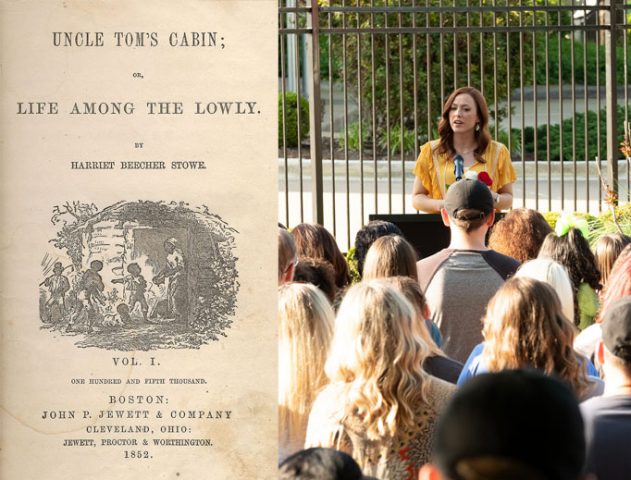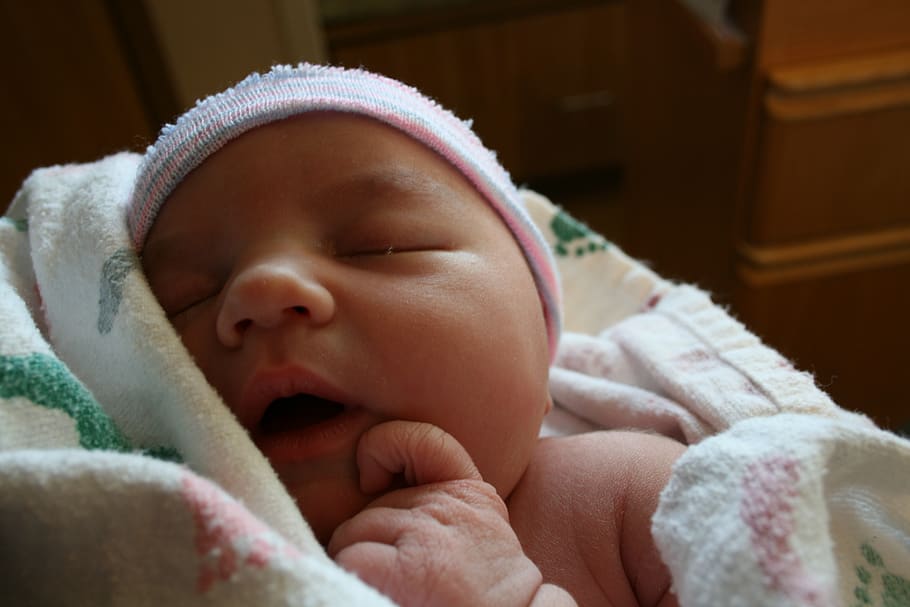Is ‘Unplanned’ the ‘Uncle Tom’s Cabin’ of Our Era? by Nicholas Healy

CNA: North Dakota Bans Common Abortion Procedure
April 15, 2019
The Top Ten Evilest People of All-Time. A List. by Larry Alex Taunton
April 15, 2019
(Public domain, UnplannedFilm.com)
COMMENTARY: The parallels between the two are too interesting to ignore.
By Nicholas Healy, National Catholic Register, 4/14/19
In the 1850s the nation was roiled by the issue of slavery. There had been major political compromises regarding slavery both in the nation’s founding documents and in subsequent congressional legislation. There was an uneasy peace between the members of Congress from the South, who were determined not only to preserve slavery but to extend it to the new territories in the West, and members from the North, who were determined to limit its expansion. In the beginning of that decade there were few in the North that believed slavery could or should be abolished outright.
Then in 1852 there appeared a book that quickly became a best-seller. Uncle Tom’s Cabin, by Harriet Beecher Stowe, became the most-sold novel of the 19th century, second only to the Bible in all book categories.
The novel relates the story of a slave family, based on a real-life slave. In it the full horrors of slavery are exposed: the forced breakup of families, the beatings, the constant indignities and cruelties. It is generally acknowledged that Uncle Tom’s Cabin had a profound effect on attitudes toward slavery.
This “peculiar institution” could no longer be viewed as a mere abstraction, as an economic system that somehow suited the South but was of no real concern to those in the North. Most significant, perhaps, was that slaves were realistically portrayed as persons, not property or “chattels,” as the infamous Dred Scott decision held.
The slaves were individuals with personality, with virtues and vices. Indeed, the names of victims and victimizers have echoed through the centuries and are part of our lexicon: Uncle Tom, Eliza, Simon Lagree. The reality of what was being done to human beings could no longer be ignored.
Uncle Tom’s Cabin was also a runaway best-seller in England, where more than 1 million copies were sold. It is not unlikely that the book influenced enough people against slavery that it helped the British government decide not to recognize the Confederacy, a crucial blow to its prospects in the Civil War.
In the North, the book galvanized the abolitionist movement, impeded enforcement of the hated Fugitive Slave Act, and certainly aided President Lincoln in his determination to resist the South’s plan to dissolve the Union and become an independent nation protecting slavery.
Unplanned has interesting parallels with Uncle Tom’s Cabin. It, too, depicts the true horrors of an entrenched system. What gives Unplanned unique credibility is that it is the true story of an abortion-industry insider.
Abby Johnson had two abortions herself. She had done volunteer work for Planned Parenthood and then took a job at its clinic in Bryan, Texas. She was successful, highly motivated and able to convince young women coming to the clinic that abortion was the answer to their problems, that it was safe and simple, and it should be done immediately. Her dedication and competence led her to be promoted to director of the facility, the youngest person ever to be so promoted. She remained with Planned Parenthood for eight years, despite the objection of both her husband and her parents, who were evangelical Christians.
There were some episodes, depicted in Unplanned, that challenged her confidence that she was really “helping women.” One was an abortion in which a young woman’s uterus was perforated and she almost bled to death — while Johnson’s supervisor prohibited a call to 911 because it could lead to bad publicity. Another was being formally reprimanded by regional Planned Parenthood executives for challenging her supervisor when an increase in abortions for every clinic was required, and she thus learned that abortion was central to Planned Parenthood’s profitability.
The final break in her commitment was when she was asked by the doctor performing an abortion to guide the sonogram camera so he could make sure his instruments were reaching the 13-week-old fetus.
Despite her years at the clinic, Abby had never before watched an abortion, nor apparently had she seen a fetus in a sonogram. Yet she had to watch the fetus, first at rest and then reacting violently to the doctor’s instruments.
The final horror was the suctioning out of the fetus, whose blood and parts Abby could see coursing through the tubes from the woman’s womb. The reality of what was being done to unborn babies came crashing in, and Abby could no longer be a part of it.
I doubt that anyone can watch Unplanned and not be deeply affected. It is claimed that the movie is simply “preaching to the choir.” Yet even if correct (which I doubt), those already in the pro-life camp will be profoundly touched and motivated to do more. This is not like the case of Kermit Gosnell, the abortion practitioner accused of multiple murders, or of David Daleiden recording the willingness of some Planned Parenthood employees to sell baby parts. These can be and have been dismissed as outliers, not essential to or reflective of the standard Planned Parenthood “service” to women.
What makes Unplanned potentially so powerful is that it depicts exactly the standard workings of a Planned Parenthood clinic, not by a “mole,” but by a valued and experienced Planned Parenthood executive.
For those willing to watch it, the idea that abortion can be safely discussed in terms of “women’s rights,” with no need to consider the details of what is actually done, is no longer tenable. No more than could slavery be thought of only in the abstract, or in its economic effects, after Uncle Tom’s Cabin related what was actually being done on slave plantations.
Uncle Tom’s Cabin was banned in much of the South. There have been comparable efforts to censure Unplanned or limit its advertising. Like the Slave Power of the antebellum South, the Abortion Power of Planned Parenthood and its allies in the media, Hollywood, the pornography industry and radical feminism will brook no challenge.
Yet perhaps through the prayer of countless pro-lifers, a film has been made that threatens to reveal the lies about what abortion is and shake from lethargy those who knew abortion was somehow wrong and now cannot help but know it is a profound evil deserving to be resisted.
Nicholas Healy is the president of Newman College Ireland.
Copyright © 2019 EWTN News, Inc. All rights reserved.
https://www.catholicnewsagency.com/news/north-dakota-bans-common-abortion-procedure-26925




